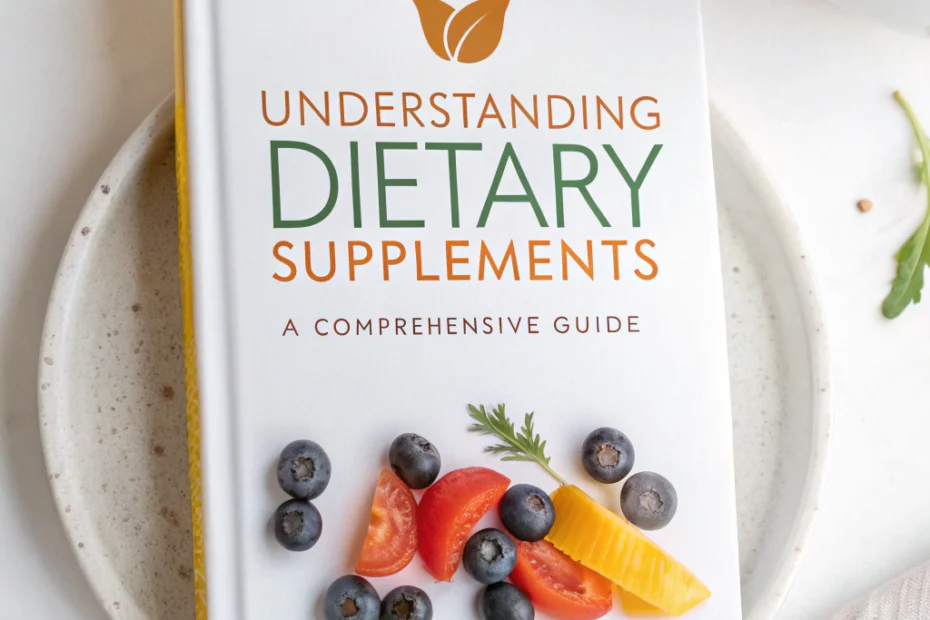Quick Take
Dietary supplements are products designed to add nutrients to your diet or to lower your risk of health problems, such as osteoporosis or arthritis. They come in various forms, including tablets, capsules, powders, and liquids. Common supplements include vitamins, minerals, herbs, amino acids, and enzymes. While they can support your health, they are not a substitute for a balanced diet and healthy lifestyle.
Supplements can be beneficial for people who have specific nutrient deficiencies or those who need additional nutrients due to health conditions. However, it’s crucial to approach them with a clear understanding of their potential benefits and limitations.
How to Choose
Choosing the right dietary supplement can be overwhelming given the vast array of options available. Here are some tips to help you make an informed decision:
- Identify Your Needs: Determine what you hope to achieve by taking a supplement. Are you looking to fill a nutritional gap, support a specific health condition, or enhance your overall wellness?
- Research Ingredients: Look for supplements with ingredients that are backed by scientific research. Check for third-party testing to ensure quality and purity.
- Consult a Professional: Speak with a healthcare provider to discuss your health goals and any potential interactions with medications you are currently taking.
- Read Labels Carefully: Pay attention to the dosage, serving size, and any additional ingredients that may not be necessary for your needs.
Safety & Setup
When incorporating dietary supplements into your routine, safety should be a top priority. Here are some guidelines to follow:
- Check for Interactions: Supplements can interact with medications or other supplements, potentially causing adverse effects. Always check with a healthcare professional.
- Start Slowly: Introduce one supplement at a time to monitor how your body reacts. This approach helps identify any side effects or allergies.
- Follow Recommended Dosages: More is not always better. Adhere to the recommended dosages to avoid toxicity or other health issues.
- Be Cautious with Claims: Be wary of supplements that promise quick fixes or miraculous results. Look for products that provide realistic benefits.
Core Pillars
Understanding the core pillars of dietary supplements can help you make better choices:
- Nutrient Density: Supplements should provide a concentrated source of essential nutrients that may be lacking in your diet.
- Bioavailability: Choose supplements that are easily absorbed and utilized by your body for maximum benefit.
- Quality Assurance: Opt for products that have been tested for quality and purity by reputable third-party organizations.
- Personalization: Consider your individual health needs, lifestyle, and dietary restrictions when selecting supplements.
Storage & Quality Tips
Proper storage of dietary supplements is crucial to maintain their effectiveness and safety:
- Store in a Cool, Dry Place: Heat and moisture can degrade supplements, reducing their potency.
- Keep Away from Children: Store supplements out of reach of children to prevent accidental ingestion.
- Check Expiration Dates: Regularly check the expiration dates and discard any expired products.
- Seal Tightly: Ensure bottles are tightly sealed to prevent exposure to air and moisture.
Comparison with Alternatives
Dietary supplements are just one option for supporting your health. Here are some alternatives to consider:
- Whole Foods: Eating a balanced diet rich in fruits, vegetables, whole grains, and lean proteins can provide the nutrients your body needs.
- Fortified Foods: Some foods are fortified with vitamins and minerals, offering an alternative way to boost nutrient intake.
- Lifestyle Changes: Regular exercise, adequate sleep, and stress management can significantly impact your overall health and well-being.
- Functional Foods: These are foods that have a potentially positive effect on health beyond basic nutrition, such as probiotics or omega-3 enriched products.
FAQs
Q: Can I take multiple supplements at once?
A: It’s possible to take multiple supplements, but it’s important to ensure they do not interact negatively with each other or with any medications you are taking. Consult with a healthcare professional for personalized advice.
Q: Are natural supplements safer than synthetic ones?
A: Not necessarily. Both natural and synthetic supplements can be effective and safe when used correctly. The key is to choose high-quality products and follow recommended guidelines.
Q: How long does it take to see results from supplements?
A: The time it takes to see results can vary depending on the supplement and individual factors such as your health condition and lifestyle. Some people may notice changes within a few weeks, while others may take longer.
What to Do Next
Now that you have a better understanding of dietary supplements, consider evaluating your current health needs and goals. Research potential supplements that align with your objectives and consult with a healthcare professional to ensure they are appropriate for you. Remember, supplements are meant to complement a healthy lifestyle, not replace it.
Disclaimer: Always consult a qualified healthcare professional before using any supplement.
